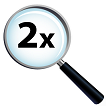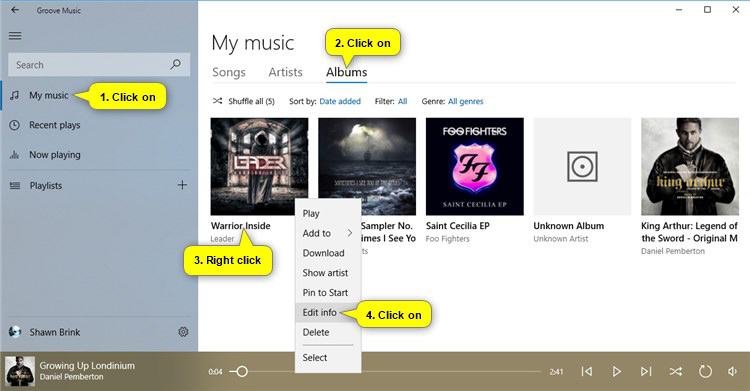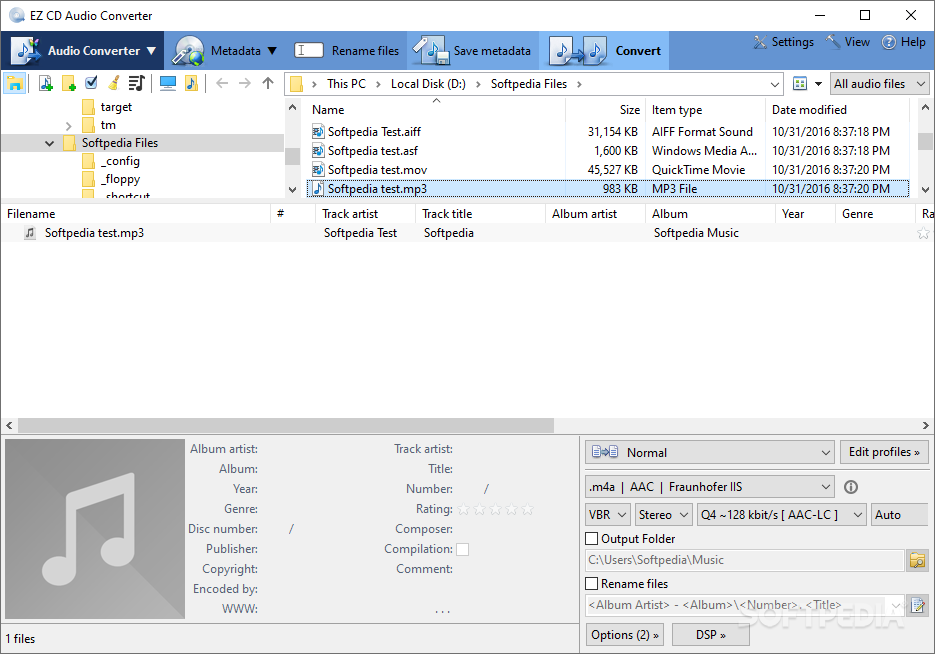
#Change metadata on ripped cd multiple songs at once software#

Once the music is ripped (or downloaded) but before it is put in the music library or librariesīased on these stages, aside from general-purpose tag editing tools, we can consider:.When the music is ripped (doesn't count for music downloads).There are three stages of managing one's music collection where tag management (and here I'm including sorting out cover art) can happen: And, of course, all three can be out of sync. This data may be found as well in the tags and the music database. Note that there is a further opportunity to disorganize, since a music file will have a name (within the computer's file system), which could reflect, among other things, the name of the song, the track number from the album, the artist's name, and other information. Many music players maintain copies of this metadata in a "music database." Of course, in doing so, the music database and the metadata can get out of sync, which can lead to all sorts of irritating disorganization.

And by the way if the description of patent shenanigans in that article aren't enough to convince everyone to start using FLAC or Ogg Vorbis, I'm not sure what is.īesides all that technical stuff, music tags or metadata are put there for our convenience, so each file carries around enough info to identify itself. MP3 is not really open, although it is commonly treated as such and has had some its patents apparently expire (see the section Licensing, Ownership and Legislation). As for the MP3 format, its tags are stored in ID3 format. Wikipedia's Vorbis comments article further informs us that tags are intended to store short Unicode strings as well as (binary) cover art. The site's open FLAC music format article tells us that FLAC "uses the same system as Vorbis comments" for storing metadata. Wikipedia's article on tag editors mentions a substantial number of music formats and on the format of tags themselves carried within those formats. Any given tag is data about the music contained in the file, which makes it metadata. What is a music tag?īefore diving too deeply into the why and how of tag editing, consider what a music tag is and why you use it. I've summarize my experiences so that others might benefit. Lately, as I've been exploring new players and new playing environments, I have had the chance to try a few different music tagging applications. Unusually for me, though, I have invested a fair bit of time (grumpily) in trying to organize my music, meaning I structure it well on disk and make sure the tags and cover images are consistent.

When it comes to enjoying my music, these two contradicting tendencies tend to show up when I try a new music player that can't figure out how my cover art is stored, can't find the correct cover image online because the album is unusual, or the version I have isn't correctly named. Equally, I always hate it when I can't find something because I haven't filed or organized it well. I think that I've always hated filing and organizing stuff.

An introduction to programming with Bash.A guide to building a video game with Python.


 0 kommentar(er)
0 kommentar(er)
